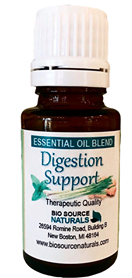Essential Oils for Nausea
Essential Oils for Nausea
 There are many things that can cause nausea. Anesthesia, migraines, hangover, motion and morning sickness, stress and fear are just a few. Here are some ways to use essential oils for nausea.*
There are many things that can cause nausea. Anesthesia, migraines, hangover, motion and morning sickness, stress and fear are just a few. Here are some ways to use essential oils for nausea.*
Find two or three of these essential oils for nausea that you feel will help your situation, and use them in one of the ways below.
See our references at the bottom of this page for additional information.
*This statement has not been evaluated by the FDA and is not intended to diagnose, treat, or prevent any disease.
Ginger Essential Oil*
Ginger essential oil is said to be one of the best essential oils for nausea and dizziness.. Ginger oil has a warm, spicy aroma with a hint of lemon and pepper that can help to support stomach and digestive problems as well as nausea and vomiting. In addition, it may also help to ease feelings of anxiety or stress that can contribute to nausea. A good example is ginger ale, which many of us have looked to this as a home remedy for nausea. Ginger can help settle your nausea in a variety of circumstances like travel and car sickness, as well as indigestion and overeating.
- Soak in a soothing bath to settle your abdominal discomfort. Blend together 4 drops of lavender essential oil, 2 drops of ginger essential oil in 1 tablespoon unscented castile soap and add to your bath water to sooth abdominal discomfort.
- Apply one drop of ginger essential oil to the palm, rub palms together, then bring to nose and inhale the aroma. You can also create an easy aromatherapy inhaler by adding 4 drops spearmint essential oil, 2 drops ginger essential oil, 2 drops cedarwood essential oil and 2 drops lavender essential oil to the cotton wick of an empty inhaler and inhale.
- When applied to abdomen, the warming qualities of ginger essential oil also helps with any belly aches and pain. You can apply the oil directly to your pressure points at your forehead and wrists, or you can add it to a carrier oil such as coconut or jojoba. Add one teaspoon of carrier oil to 2 drops ginger essential oil to the palm of your hand and rub on your belly and chest. If you are using the oil on your skin, be sure that the area is completely dry before application.
- Add to your diffuser to create an anti-nausea blend. Add 3 drops cedarwood essential oil, 2 drops ginger essential oil, 2 drops grapefruit essential oil and 1 drop fennel essential oil to your diffuser with the recommended water for your machine.
- For an on the go relief for nausea add 2 drops of ginger essential oil, 2 drops of cedarwood essential oil, 1 drop of spearmint essential oil, and 1 drop peppermint essential oil to a 9 ml roller ball bottle and fill to the top with jojo carrier oil.
Ginger essential oil is very aromatic, if using topically too much can irritate the skin so use sparlingly.
Lemon Essential Oil*
Lemon essential oil is a pure essential oil extracted from the rind of a lemon. Lemon essential oil has a light, fresh citrus scent. Dubbed the “the sunshine oil” lemon essential oil is refreshing and rejuvenating. Its aroma inspires, brings fresh energy, and clears the mind and relaxes you.
- Lemon essential oil diluted with a carrier oil can be applied to pressure points, rubbed gently over the stomach and intestinal area.
- Put 1-2 drops of lemon essential oil in an oil burner or a diffuser in your bedroom to help soothe and relieve nausea.
- Add 2-3 drops of lemon essential oil into your bath to calm and relax.
- Place 2 drops of lemon essential oil diluted in a carrier oil such as coconut on a cotton ball and inhale to calm morning or motion sickness.
Peppermint Essential Oil*
Peppermint essential oil is a great way to fight nausea. Its calming and numbing effect relaxes your stomach muscles. You can also use it to relieve motion sickness, which can make nausea worse. Peppermint essential oil is best known for relieving headaches, easing nausea and vomiting, digestion issues, pain aide, promoting alertness and beating fatigue.
- Massage several drops of peppermint essential oil on your stomach, place a drop on wrists or inhale to soothe motion sickness or general nausea.
- Inhaling peppermint essential oil when you feel nauseous will improve your symptoms and have you feeling better quickly. Though more research is needed into peppermint essential oil’s effects on different kinds of nausea, try peppermint essential oil in a diffuser the next time you’re feeling sick.
- When sniffed, peppermint essential oil has potential to nix nausea. For nausea after surgery with anesthesia try an inhaler with a blend of peppermint essential oil, lavender essential oil, spearmint essential oil and ginger essential oil.
- Peppermint essential oil for morning sickness is a helpful home remedy as it’s safe for pregnant women.
- Peppermint essential oil can be safely diffused and/or the oil can be inhaled when feeling nauseous.
Lavender Essential Oil*
Lavender essential oil is another go-to remedy when using essential oils for nausea, although it’s not as commonly recommended by doctors and other experts.
- If you’re feeling nauseous, you can use a few drops of lavender essential oil on your pillowcase (but not on your skin) or even just breathe it in from an open bottle.
- Using lavender essential oil topically (diluted in carrier oil) or in a diffuser can help your mind decompress as you get ready for bed. This remedy works best when you put a few drops of lavender in an essential oil diffuser and breathe in slowly as the scent fills the air.
- You can also add 2-3 drops of lavender essential oil to a bowl of steaming water and cover your head with a towel while inhaling the steam from the bowl.
It’s important to note that both peppermint and lavender essential oils are safe during pregnancy when used in small amounts—as long as they’re diluted with another substance like coconut or sweet almond oil —and they don’t come into contact with the skin directly.
Lavender essential oil should be used sparingly because large doses may cause headaches.
Spearmint Essential Oil*
Spearmint essential oil is one of the most effective natural remedies for nausea and vomiting. It can be used to treat both morning sickness, which occurs in early pregnancy and often subsides by week 14 or 15 of gestation, as well as motion sickness.
- Like peppermint and ginger essential oils, spearmint essential oil can be applied to pressure points, rubbed gently over the stomach and intestinal area, or diffused through the air to bring relief for nausea.
- Spearmint essential oil contains menthol—an aromatic compound that produces a cooling sensation when applied to your skin. The scent of menthol has been shown to reduce nausea. The refreshing scent of spearmint essential oil can make you feel more alert and able to breathe despite your nausea.
Chamomile Essential Oil*
Many of us have tried chamomile tea before. Chamomile is a popular herb to help with all kinds of health-related issues. Chamomile essential oil helps get rid of nausea by dispelling gas, soothing the stomach and relaxing intestinal muscles.
- Add 1-2 drops chamomile essential oil to your favorite carrier oil and rub on your shoulders, neck and feet.
- Add 1-2 drops chamomile essential oil to a warm bath.
While essential oils for nausea have been shown to work well for many people, it’s always important to check with your doctor before trying a new treatment. Essential oils may be the natural remedy you’ve been looking for to help with your nausea.
 Biosource Naturals Digestion Support Essential Oil Blend*
Biosource Naturals Digestion Support Essential Oil Blend*
Digestion issues like indigestion, constipation, chronic stomachaches, or other digestive problems, have many folks turning to essential oils for relief. Essential oils for nausea and digestion are safe and natural, and many professionals stand by their healing capabilities. Adhering to a healthy lifestyle, with a well-balanced diet, exercise, and adding Digestion Support Essential Oil Blend to your daily routine can provide much needed relief from digestive issues.
Safety Tips for Digestion Support Essential Oil Blend
- Dilute before use prior to use. Keep away from the eyes.
- Do not use if you will be exposed to direct sunlight or sunlamps within 12 hours.
- Do not use on children under 2 years of age. Do not use during pregnancy or while nursing.
- May have potential drug interaction with diabetes medications.
- For external use only. See our Safety Information page for further details when using essential oils.
Your Best Essential Oils for Nausea*
Each of the essential oils for nausea have a unique ability to bring relief. Just choose your favorite essential oils for nausea, prepare your blends, and have them all ready for the next time you start to feel nauseous. If you’re looking for an all-natural way to deal with nausea, then using essential oils for nausea is a great option. Whether you choose one of the essential oils listed above or try out some others, it can help you feel better and reduce symptoms of nausea. Of course, you should always check with a doctor or pharmacist before trying anything new.
See our references at the bottom of this page for additional information.
*This statement has not been evaluated by the FDA and is not intended to diagnose, treat, or prevent any disease.
